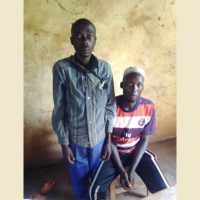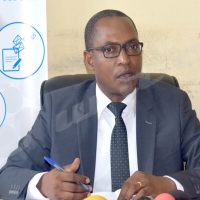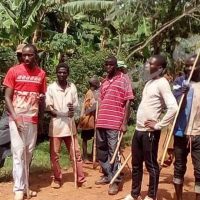President Uhuru Kenyatta is the first acting president in the world to appear in front of the International Criminal Court (ICC).The president of Kenya appeared at the ICC in The Hague on 8 October. He is suspected of crimes against humanity, committed during the post elections violence in 2007.-By Lorraine Josiane Manishatse
The appearance of the Kenyan President surprised his African counterparts. The African Union (AU) had previously asked the UN Security Council to suspend his prosecution, because the AU is of the opinion that sitting heads of state and government members should not be prosecuted while in office.
Kenyatta however, decided to appear as a citizen and not a Head of State. “He handed over power to his deputy to show that he appears as an individual and not an institution”, explains the lawyer Gustave Niyonzima, Expert in International Law and the first Burundian trainee at the International Criminal Court. “And he paid for the travel costs for himself and his family.”
According to Niyonzima, the appearance of Kenyatta was in accordance with the law. Article 27 of the ICC Statute stipulates that “an acting president can be prosecuted or charged by the International Criminal Court”. This article shows impartiality and equality as all persons are born free and equal before the law.
However, many African presidents have accused the international court of targeting African leaders. For Niyonzima, this is baseless pretext: “The ICC is new. It is true that it has treated many African issues till now, but in time, Americans, Europeans and Asians will appear as Africans are doing now”, he points out.
Niyonzima states that the appearance of Kenyatta was based on a defense strategy in international politics. “He didn’t want to suffer like the President of Sudan who is now morally incarcerated because he has refused to appear in court.”
Moreover, Kenyatta’s lawyer advised him to appear in order to show that he respects the international law. He didn’t risk much by appearing, since Kenyatta is in a strong alliance with the USA over the fight against Al-Shabaab. “The ICC cannot touch him as the UN Security Council has a right of veto on the Court”, highlights Niyonzima.
Kenyatta welcomed home as a hero
Kenyatta returned from The Hague the day after his court appearance. He was given a red-carpet welcome with a military honour guard and dancers singing songs about his innocence. Thousands of Kenyans showed up, waving flags and shouting their support.
The Prosecutor of the International Criminal Court, Fatou Besounda says she has insufficient material for a trial and has asked the judges for an indefinite postponement, stating that Kenyan officials refused to cooperate with a request for financial and other records.
Kenyatta’s lawyers say that because there is no evidence, Kenyatta is “entitled to a non guilty verdict”. Conversely, civil society activists in Kenya and the lawyer representing the victims, Gergal Gaynor, point to the intimidation of witnesses and call for measures against Kenya if the judges rule that the government is not cooperating.
The legal expert Gustave Niyonzima states that even while the Prosecutor of ICC has complained about the Kenyan Government’s refusal to hand over evidence, she can no longer accuse him of lack of will to appear before the International Court. He calls upon other African Heads of States to follow the good example given by the Kenyan president. “No one is above the law”, he concludes.
The ICC judges will now decide whether to set a trial date, to shelve the proceedings, or to postpone the case.




















 IWACU Open Data
IWACU Open Data

